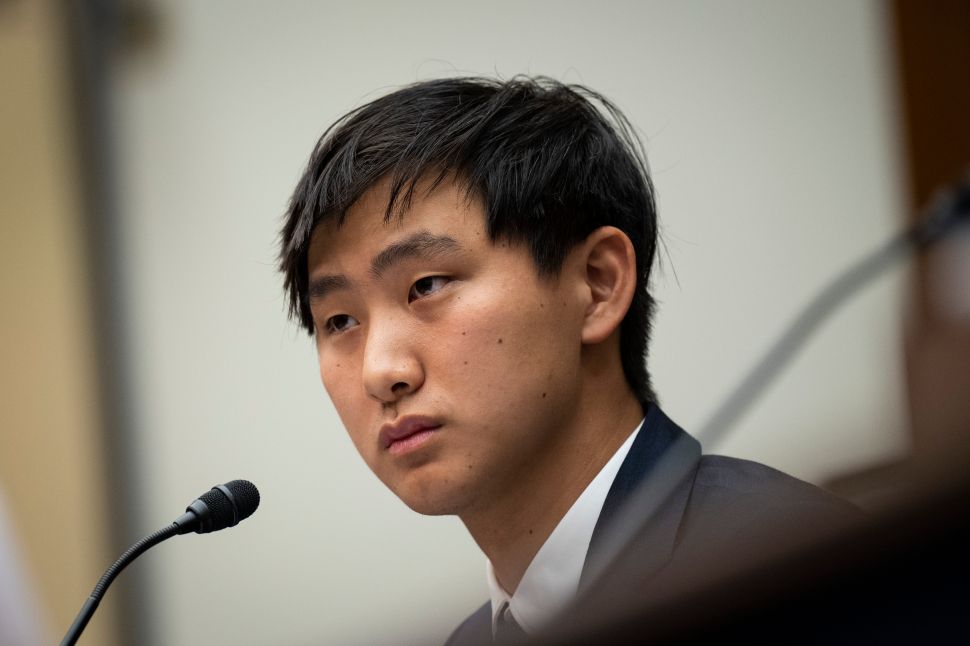For around a decade, the U.S. has retained its A.I. dominance over China, according to Alexandr Wang, the 28-year-old founder and CEO of Scale AI, a $13 billion startup. But with the Christmas release of an “earth-shattering” A.I. model from the Chinese startup DeepSeek, the gap between the two countries is becoming dangerously narrower, Wang said in an interview with CNBC on Jan. 23.
Earlier this week, DeepSeek released a second A.I. model that demonstrates reasoning capabilities rivaling those from top U.S. companies like OpenAI. In addition to shocking researchers with its performance, the Chinese startup’s rapid progress has raised questions about the effectiveness of A.I. chip export controls intended to curb China’s access to the advanced graphics processing units (GPUs) underpinning A.I. tools.
“The A.I. race and the A.I. war between the U.S. and China is one of the most important issues of today,” said Wang, who recently took out a full-page advertisement in The Washington Post urging the Trump administration to protect America’s lead over the emerging technology. The advertisement pointed readers to a letter from Wang that claimed China’s A.I. models are quickly catching up and called upon the federal government to pour more money into compute and data and unleash an energy plan to support the A.I. boom, among other recommendations.
Wang is one of the world’s youngest self-made billionaires. He was born and raised in Los Alamos, New Mexico, as the son of weapons physicists who worked at the famed Los Alamos National Laboratory. After a brief stint in Silicon Valley working for fintech company Addepar and Q&A website Quora, Wang began studying machine learning at the Massachusetts Institute of Technology before dropping out to establish Scale AI, which uses contract work to provide troves of accurately labeled data for A.I. training efforts.
Scale AI was valued at $13.8 billion last year and counts the U.S. Department of Defense and OpenAI among its clients. Wang is longtime friends with OpenAI CEO Sam Altman, having roomed with him during the Covid-19 pandemic. He launched Scale AI in 2016 within Y Combinator, the startup accelerator formerly helmed by Altman.
How does DeepSeek’s new release compare to frontier models in the U.S.?
Scale AI also recently partnered with the Center for A.I. Safety to release “Humanity’s Last Exam,” which they described as the toughest benchmark test yet for A.I. systems. While no model has been able to achieve more than 10 percent on the test so far, Wang said DeepSeek’s new reasoning model, DeepSeek-R1, has topped the leaderboard. “Their model is actually the top-performing, or roughly on par with the best American models,” he told CNBC.
Due to tough GPU export controls in China, DeepSeek claims it has managed to create powerful models with far less computing power compared to American systems. DeepSeek-V3, the model released in December, was trained on around 2,000 A.I. chips from Nvidia (NVDA), according to DeepSeek researchers. Meta (META)’s Llama 3.1 model, for reference, was trained on 16,000 GPUs.
Wang isn’t convinced. “The Chinese labs have more H100s than people think,” he said, referring to a type of Nvidia GPU that isn’t legally available in China. “My understanding is that DeepSeek has about 50,000 H100s—which they can’t talk about, obviously, because it is against the export controls that the United States has put in place.”
To continue pushing its frontier models, the U.S. must unlock more computational capacity and infrastructure, according to Wang, who believes the A.I. market is on track to be worth $1 trillion once A.I. achieves the benchmark of artificial general intelligence (A.G.I.). While A.I. leaders have offered up various timelines and meanings for A.G.I., Wang’s definition refers to systems that “could basically be a remote worker in the most capable way,” an achievement he believes will be accomplished in the next two to four years.

